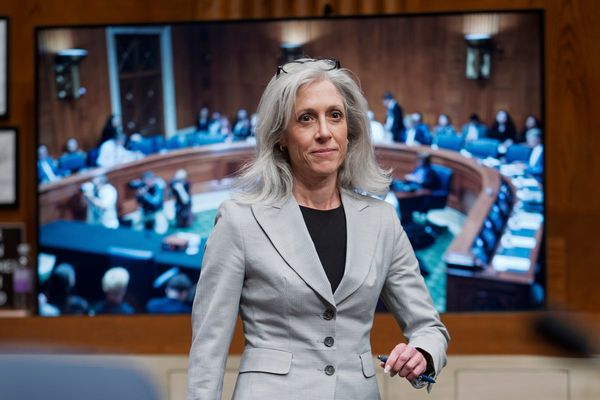Delta Air Lines on Wednesday said it had "yet to see any meaningful pullback in demand" and that service disruptions were easing, after reporting second-quarter per-share profit that was the best in years but still short of estimates.
DAL stock fell solidly on Wednesday, though it did close well off morning lows. Rival carriers were mostly lower.
Even as Delta remained upbeat on demand, it also said it would hold its flight capacity at June levels, as it tries to stabilize operations. And it forecast a 22% jump in nonfuel unit costs for the third quarter, compared to 2019, as it flies with full costs but only around 85% flight capacity.
The airline said consumer demand was still strong as it heads into the fall. And it said it expected an uptick in corporate travel and international travel after the peak summer travel season ends.
"You've got to remember, people have not had access to our product for the better part of two years, particularly business and higher-end consumers," CEO Ed Bastian said during Delta's earnings call. "And we're not going to satisfy that thirst in the space of a busy summer period."
Travel has roared back to life this year, after many consumers spent much 2020 and 2021 stuck at home due to the pandemic.
But airline stocks have struggled for the past few months amid concerns about rising airfares, higher costs and future consumer demand. Harsh weather and understaffing have led to thousands of flight cancellations in recent weeks and more lawmaker scrutiny.
Bastian said Delta had hired 18,000 employees since last year, and was dealing with a "training and experience bubble" rather than any hiring difficulties. And it said that it had only canceled 25 flights, out of more than 30,000 worldwide, over the first seven days of July.
Delta Earnings
Delta earned $1.44 a share during the quarter. That was below estimates for $1.66. Adjusted revenue of $12.31 billion beat estimates for $12.251 billion.
Domestic passenger revenue rose 3% compared to second-quarter 2019 levels. Corporate domestic travel was still down, but showing a notable improvement compared the first quarter.
International passenger revenue has only recovered to 81% of second-quarter 2019 levels. The adjusted fuel price of $3.82 per gallon was up 37% compared to Q1.
The carrier sees third-quarter revenue of $12.6 billion to $13.1 billion, up 1% to 5% compared to 2019 levels and slightly above consensus. Delta said it expected its fuel costs to dip to $3.45 to $3.60.
Total flight capacity will be down 15%-17% vs. Q3 2019, as the carrier vows to provide more reliable service.
Delta Stock
Shares fell 4.5% to 29.70 on the stock market today. DAL stock hit 28.35 intraday, just above its worst levels since late 2020. Shares sold off hard since late May.
DAL stock has a 22 Composite Rating. Its EPS Rating is 33.
Among other airline stocks, American Airlines fell 3.1% on Wednesday, while United Airlines dipped 0.8% and Southwest Airlines rallied to close up 0.7%. They jumped Tuesday, with AAL stock up 10%.
American, in a filing on Tuesday, said it expected total unit revenue to increase around 22.5% for the second quarter, compared to 2019. That was above earlier expectations for a 20% to 22% gain. Unit revenue measures sales in relation to flight capacity.
American said it expected total sales to increase around 12% for the second quarter compared to 2019, hitting the midpoint of a prior forecast for an 11% to 13% increase.
'Phenomenal Demand'
Delta Air, in June, said it expected demand in leisure, business and international travel had improved throughout the second quarter. But it expected higher fuel and other costs, following Russia's invasion of Ukraine, cuts to flight schedules and "investments in operational reliability."
Delta has said it planned to shrink its flight schedules over this summer, as it struggles to stay staffed up.
Airlines bought out or furloughed a big portion of staff after the pandemic hit in 2020. Now, they find themselves trying to hire in an economy where more workers are demanding more pay and better benefits and protections. The industry is also trying to train pilots, who have been in short supply.
Bastian, during a conference last month, said 20% of Delta's staff left in the summer of 2020. But he was reluctant to say Delta suffered from a pilot "shortage," and said recruiting hadn't been difficult.
Nonetheless, he said the training cycle for the pilots needed another eight to 12 months before "until it really stabilizes and we start to feel confident and bring in more and more of our capacity back." But he said those pilots would be younger and "well-set for the future."
Dennis Tajer, a representative for American Airlines' pilots union, told CNBC last month that airlines had failed to plan for the resurgence in travel demand, posing risks to flight safety.
"They're trying to fly airplanes without the pilots available," he said.







